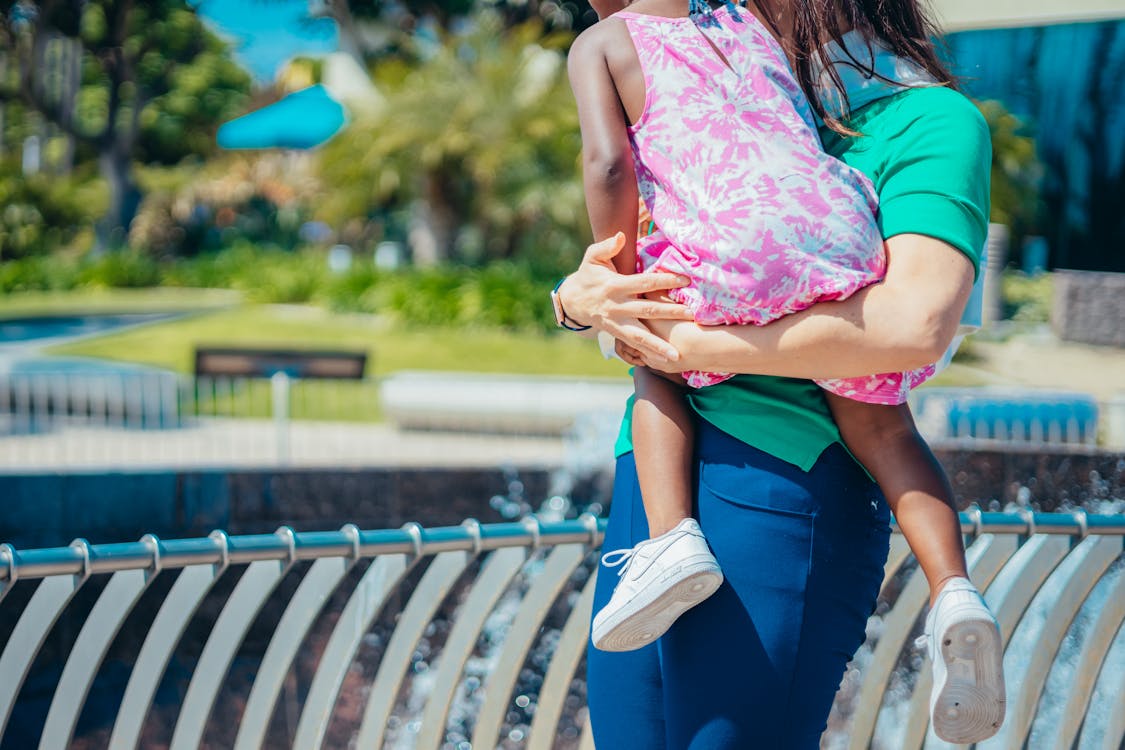Looking to Adopt a Child in India? Here’s What you Need to Know!
7 minuteRead

Once considered a taboo in India, child adoption has now become a trend. A lot of parents who are not able to have their own children are turning to adoption to complete their family. India is a country with a beautiful culture and there are several underprivileged children growing up without their kith and kin. When a stable, loving family considers adoption, they give a child who has been left alone a new lease of life. Today, adoption is freely spoken about in Indian society. Back in the day, women who took the adoption route faced social stigma and various societal challenges. However, today, adopting a child is considered a welcome move. It also helps curb the rapid population growth. In fact, National Adoption Day is celebrated in the month of November every year. The day raises awareness of more than 1,00,000 children who are in foster care and are waiting to be accepted by permanent, loving families. Sushmita Sen, Raveena Tandon, Mandira Bedi, and Angelina Jolie are some of the popular celebrities who have embraced adoption.
Whether you’re single or married, you can turn to adoption. However, adopting a baby isn’t as simple and easy as going and buying groceries. There are certain laws, and rules, and regulations a family must adhere to before taking the big step. In this blog, we hope to cover all your adoption-related queries.
Adoption Process in India
The procedure for the adoption of a child in India is as follows:
-
Registration
Prospective Adoptive Parents (PAPs) need to register online on the CARA (Central Adoption Resource Authority) website and upload their documents on CARINGS (Child Adoption Resource Information and Guidance System). The documents required include:
- PAN card of the PAPs
- Current family photograph or photograph of the couple adopting
- Birth certificate of both the parents
- Proof of residence
- Proof of income – including salary slip and income tax return
- Medical certificate that states the PAPs don’t suffer from any kind of chronic, fatal, or contagious disease
- Two reference letters from acquaintances or relatives
- Consent of the older child – this is applicable if the child is above five years
-
Home Study
Upon registration, a home study will be conducted by a social worker or a member of an adoption agency such as a Specialised Adoption Agency (SAA). The main aim of this study is to understand the motivation, strengths, weaknesses, and preparedness of the prospective parents. The agency might even recommend counseling sessions. The report is usually valid for three years. The evaluation of this study is uploaded on the CARINGS website. It is important that the study is completed within three months from the date of registration.
-
Child Referral
After the home study, there is a waiting period during which PAPs are sent profiles of legally free children. They are allowed to reserve a child within 48 hours of receiving references based on their choice and eligibility. The agency will also share medical reports, physical examination reports, and other relevant information of the child to the couple adopting. The PAPs are also allowed to spend time with the child once they are comfortable with all the details shared. Once the child and parents get to know each other, the adoption agency determines if the child and adoptive parents are a match. This process can take up to 20 days.
-
Child Acceptance
If the adoptive parents have accepted the child and the agency has given a nod, a few documents will have to be signed pertaining to the acceptance of the child. All the documents are submitted in the court and signed in front of the court officer.
-
Pre-adoptive Foster Care
If the petition has been signed in the court, the adoptive parents can take the child into pre-adoptive foster care to understand their habits from caretakers and nursing staff before ultimately taking the child home.
-
Court Hearing
To finalize the adoption, the parents have to attend a court hearing along with the child. This is usually held in a closed room with a judge. A few questions are asked and all this is recorded on camera. The judge will even mention the amount that needs to be invested in the child’s name.
-
Finalising & Following up
Once the necessary investment has been made, the judge will pass adoption orders. The issuance of the child’s birth certificate has to be carried out within eight working days.
Once the adoption order is finalised, visits are conducted every six months to the adoptive parents’ home. This is done for two years from the date of pre-adoption foster care. Follow-up reports regarding the child’s well-being have to be submitted to the court.
Eligibility Criteria for Prospective Adoptive Parents (PAPs)
To be eligible for child adoption, it is important to fulfill the following criteria:
Eligibility
Indian, non-resident Indians (NRIs), and foreign citizens are eligible to adopt a child from/in India. The criteria to be fulfilled remain the same for all.
Marital Status
A person can adopt irrespective of their marital status. Both single as well as unmarried can adopt. If you’re single, you should be at least 21 years of age and not older than 45. If you’re adopting an older child, you can be up to 55 years of age. However, the cumulative age of the married couple cannot be more than 110 years. In the case of a married couple, no child shall be given for adoption unless they have at least two years of a stable marital relationship. A single female can adopt a child of any gender whereas a single male cannot adopt a girl child.
Financial Status
If you’re considering adopting a child, you must be financially capable. Although the law does not specify minimum income levels, the social worker who conducts a home study will evaluate the capability and motivation of the prospective adoptive parents and gauge whether they can provide a reasonable standard of living to the child.
Religion
Religion is not relevant when you’re adopting. There is a law under which adoption takes place which is known as the Hindu Adoption and Maintenance Act 1956.
Health
The PAPs need to be physically, mentally, and emotionally stable. One or both the parents should not be undergoing any kind of life-threatening medical condition.
Existing Children
Applicants can have two children already in their home, either biological or previously adopted. If you already have a child at home, you’re expected to adopt the opposite sex. You can also adopt two children at the same time in case they are biological siblings.
Couples with three or more children are not considered for adoption except in the case of special needs for children or relative adoption.
Average Age
The average age of the child you’re adopting can be 18 months to 8 years old. However, due to governmental processing times, the age of these children usually increases during the adoption process.
Preferences/Specifications
The prospective adoptive parent (PAP) is allowed to ask for a child as per their preferences. For example, they may ask for a child of a certain gender, age, skin color, religion, special features, and health condition. However, the greater the specifications, the more difficult it would be to find a suitable match. Here again, parents can only give their specifications and not pick and choose a child who conforms to them.
Challenges faced by Single Women who Adopt
Despite being occupants of a highly progressive society that has embraced adoption, there are still several single and married women who receive plenty of flak from their families. Some of the consequences of adoption include:
Sexual Identity is Questioned
In the case of a married couple, the sexual identity of one or both partners is questioned. They are considered unworthy of having their own children and are shunned by society. This can further take a toll on their mental health. Also, the woman in the relationship is considered infertile.
Victim of Social Ills
If a married woman adopts a child, friends and family might applaud their move whereas if a single mother decides to take the plunge into motherhood by adopting a child, they are accused of being selfish. Single mothers become victims of various social ills. They’re likely to be taunted by relatives and friends. However, despite this, there are several single women conquering their inner demons abolishing beliefs centered around adoption in our country.
Considered Incompetent
Despite the awareness raised around adoption in the media and on the internet, prospective adoptive mothers are considered incompetent. If they reach out for assistance or support, it is looked up as an indication of failure. Therefore, new mothers are busting these potholes and barriers undergoing counseling sessions from support groups.
The word adoption in itself has manifold emotions. It is indeed a beautiful journey that gives hopeful parents the opportunity to raise a child. If you want to experience parental bliss, you should definitely consider adopting a child. Studies reveal that adoption can improve a prospective adoptive parent’s mental health especially if married women are not able to have their own biological children.
Write, Record and Answer! Consume Unlimited Content! All you need to do is sign in and its absolutely free!
Continue with one click!!By signing up, you agree to our Terms and Conditions and Privacy Policy.










